The Top Signs of A Damaged Skin Barrier (& How To Repair It)
The Top Signs of A Damaged Skin Barrier (& How To Repair It)
The skin barrier is the security guard that dictates what substances enter and exit your cells. It keeps water in and environmental toxins out, ensuring all your organs stay well-hydrated while keeping harmful pathogens from entering the body through the skin and causing infections or more severe internal damage. The skin barrier is the layman’s term for the stratum corneum (the outermost layer of the epidermis) and is often referred to as the moisture barrier or the acid mantle. While the skin barrier must function to keep you alive, a damaged skin barrier can cause several skin issues – ranging from dry, itchy skin and flaky patches to bacterial or fungal infections, eczema flare-ups and chronic inflammation.
Expert Tip: Zensa Healing Cream contains medicinal-grade calendula oil and grapefruit oil to reduce inflammation and promote collagen to repair and hydrate the skin barrier. Combined with skin barrier nourishing ingredients like hyaluronic acid, aloe vera, sunflower seed oil (linoleic acid) and shea butter, Zensa Healing Cream helps manage eczema flare-ups and symptoms of similar chronic skin conditions. Our formula is rich in vitamins A, C, D, E and K and offers anti-inflammatory, antibacterial and antifungal benefits to soothe redness, hydrate rough patches or wounds, reduce breakouts and hyperpigmentation (like acne scars) and relieve dry, itchy skin.
Read on to learn more about the skin barrier, why it's important, the causes and signs of a damaged skin barrier and answers to the most commonly-asked questions on how to repair and maintain healthy skin barrier function.
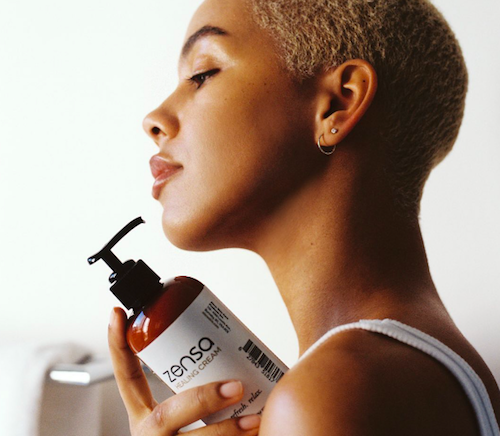
What Is The Skin Barrier?
There are three main layers of skin: the epidermis (top layer), dermis (middle layer) and the hypodermis (bottom layer). The outermost layer of the epidermis is called the stratum corneum – the more scientific name for the skin barrier. Acting as a protective shell, the anatomy of the skin barrier (or stratum corneum) is similar to a brick wall and consists of two key components: skin cells called corneocytes and a lipid layer – a combination of ceramides, cholesterol and fatty acids – that bind these skin cells together.
The Importance of Skin Barrier Health
The skin barrier acts as the body’s external filtration system. It prevents transepidermal water loss (TEWL) from seeping out of your pores to keep your skin hydrated and ensures adequate skin elasticity – two main factors necessary to maintain a strong skin barrier. The trapped moisture keeps the skin supple, creating a protective shield against free radicals, microbes and other environmental pollutants. The skin barrier can dry out without ample hydration and contribute to cracked skin. A dry, cracked skin texture leaves your cells vulnerable to becoming infiltrated with impurities, like bacteria, fungus, dirt and sun damage from UV rays – all of which can alter your skin’s tone and texture and cause skin irritation, inflammation or infection.

Signs of A Damaged Skin Barrier
Most skin concerns that cause general discomfort or distress are signs of a damaged skin barrier. Some ways to know if the skin barrier is damaged is to determine whether you’re experiencing symptoms like clogged pores, inflammation or dry, itchy skin. Adequate moisture levels are essential for healthy cellular turnover and repair. So, when the skin barrier is depleted of proper hydration, this deprivation can lead to conditions associated with slow cellular turnover. Dehydrated skin is less resilient to outside toxins, germs and pollutants. A damaged skin barrier leaves you more susceptible to skin infections, breakouts, redness or irritation and can also trigger symptoms of chronic autoimmune or inflammatory conditions, like eczema. Signs and conditions associated with a damaged skin barrier include:
- Acne
- Dry, Cracked skin
- Itchiness
- Redness
- Bumpy Skin
- Skin Inflammation
- Dehydrated or Dull Skin
- Rough or Scaly Patches
- Hyperpigmentation
- Skin Infection
- Eczema Flare-ups
- Rosacea or Psoriasis Symptoms
- Wrinkles, Fine Lines or Textured Skin
- Delayed Wound Healing
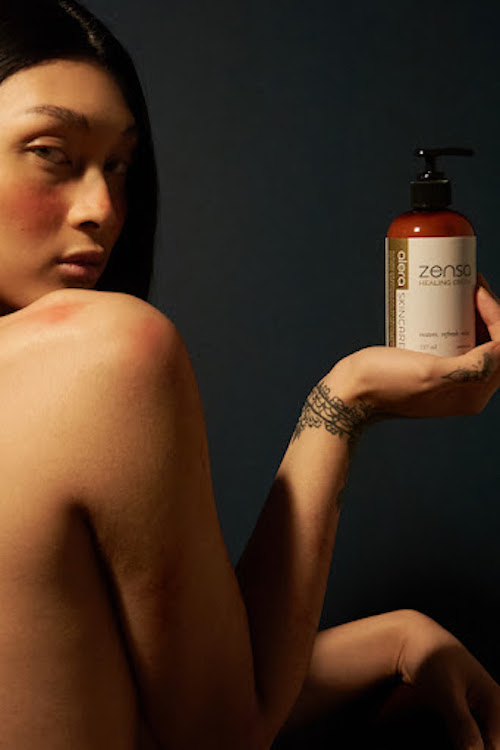
Causes Of A Damaged Skin Barrier
Certain environmental conditions or lifestyle habits can deplete the lipid barrier and strip moisture from the stratum corneum – increasing transepidermal water loss. These low levels of water retention dehydrate the skin. Inadequate lipids in-between the skin cells leave you with impaired skin barrier function, which results in cracked, dull or inflamed skin. Common causes of a damaged skin barrier include:
- Air Quality (Overly Humid or Dry Air)
- Too Much (or Unprotected) Sun Exposure
- Wind
- Excessive Hand Washing or Over-Exfoliating Skin
- Harsh Soaps or Skincare Products
- Allergens, Irritants or Pollutants
- Products Containing Harsh Chemicals (Laundry Detergent, Cleaning Products)
- Stress, Depression, Anxiety & Other Mental Health Concerns
- Nutrient-Deficient Diet
- Smoking
- Lack of Sleep
- Steroids
- Genetic/Autoimmune Skin Disorders (Eczema, Psoriasis, Rosacea)
Extreme weather conditions make your skin more susceptible to gathering dirt, allergens, oil and other damaging elements. High humidity expands pores, increasing transepidermal water loss and inviting pollutants into the skin. Counterintuitively, this excessive moisture dries out the skin and can lead to clogged pores, acne, eczema flare-ups, rashes and other types of skin irritation or infections. Dry air sucks the water out of the skin – depleting the moisture barrier and leaving you with cracked and dry, itchy skin. The sun’s UV rays strip the skin of its natural oils and break down skin elasticity to weaken the moisture barrier. Excessive hand-washing, over-exfoliating and using harsh (skincare, haircare or household) cleaning products also strips the lipid barrier and increases TEWL, which has a similar drying effect and irritates the skin.
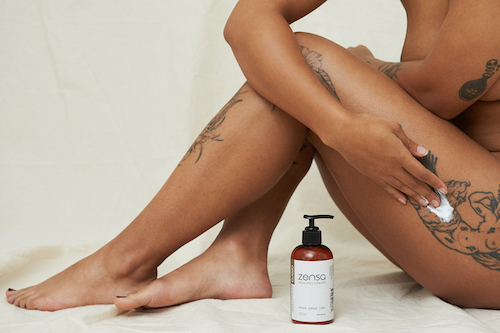
Lack of sleep, mental health concerns (like anxiety and depression) and other causes of constant stress can hinder collagen production, impairing skin barrier function. Smoking is alo a leading factor in diminished collagen and elastin production, which compromises skin integrity and damages the skin barrier.
Nutrient deficiencies – particularly a diet lacking in vitamin C or omega 3-rich foods – can negatively impact skin barrier function A 2018 study concluded that a vitamin C-deficient diet is a beneficial tool to prevent and manage skin diseases or control inflammation (like eczema flare-ups). Vitamin C contains high levels of antioxidants that offer several benefits to support skin barrier health. The nutrient’s anti-inflammatory benefits fight free radicals and help prevent or repair dry skin. Vitamin C also stimulates collagen production, which promotes cellular turnover and supports the skin’s wound healing process. Omega 3 hydrates the skin and prevents TEWL to keep moisture in and potential irritants out. The benefits of omega 3 for your skin include reducing acne and inflammation as well as calming red, dry and itchy skin. A 2011 study found that regular consumption of omega 3-rich foods has been linked to improved skin barrier function and symptoms associated with a damaged skin barrier, including dry skin and mild atopic dermatitis.

How Long Does It Take To Heal A Damaged Skin Barrier
Don’t expect a damaged skin barrier to repair itself overnight. How long your skin barrier takes to heal depends on your age and the severity of your case when beginning your complexion’s rehabilitation journey. Our skin collagen and elastin naturally decrease as we age – which loosens these fibres and leaves us with a thinner skin texture that takes longer to self-repair.
If the damage is relatively mild, expect to see the initial positive results around 1-2 weeks after starting your new skin barrier-support regimen. When recovering from mild skin barrier impairment, it should take approximately 2 weeks to 2 months to heal your skin barrier. In more severe cases, where your skin barrier has spent being broken down for months, it may take nearly as long to improve your skin barrier function and appear on the mend.
The cause of your damaged skin barrier will also influence the length of the healing process and how you plan to maintain a strong skin barrier in the long run. If your impaired skin barrier function was caused by using harsh products or lifestyle factors, like diet, smoking, sun exposure or sleep, it will likely be a simpler process to repair your skin barrier. However, if a genetic condition like eczema or psoriasis is the root cause of your damaged skin barrier, it will take more diligent effort to maintain a healthy skin barrier function over the long term.
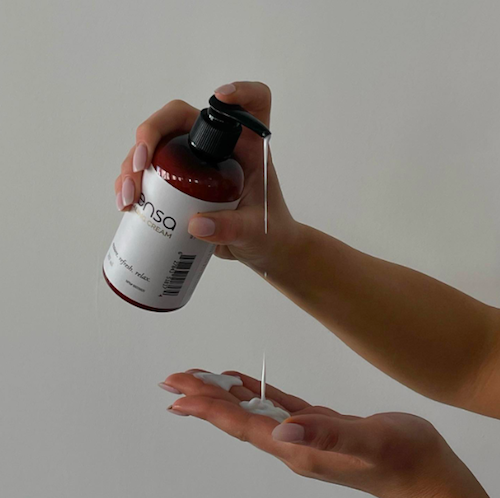
How To Repair Damaged Skin Barrier
- Simplify (Or Upgrade) Your Skincare Routine
- Moisturize & Hydrate Consistently
- Focus On Fighting Inflammation
- Restore With Antioxidants
- Stay Out Of The Sun (And Use Protection)
- Practice Self-Care & Build Healthy Habits
Stick to the basics when building a skincare routine to repair your skin barrier. Incorporate a calming, gentle cleanser with hydrating serums and rich moisturizers, like Zensa Healing Cream, into your restorative regimen. Prioritize using soothing, chemical and fragrance-free products. Look for items with humectants, occlusives and natural emollients or fatty acid ingredients to add to your routine. Layer nourishing cleansers with hydrating serums and moisturizers. Apply them twice daily onto the skin.
Do your research on the best products and natural remedies to use for repairing the skin barrier. Zensa Healing Cream contains medical-grade calendula oil and grapefruit essential oil, which offer anti-inflammatory benefits to increase cellular turnover, reduce irritation, accelerate wound healing and overall support the skin barrier repair process.
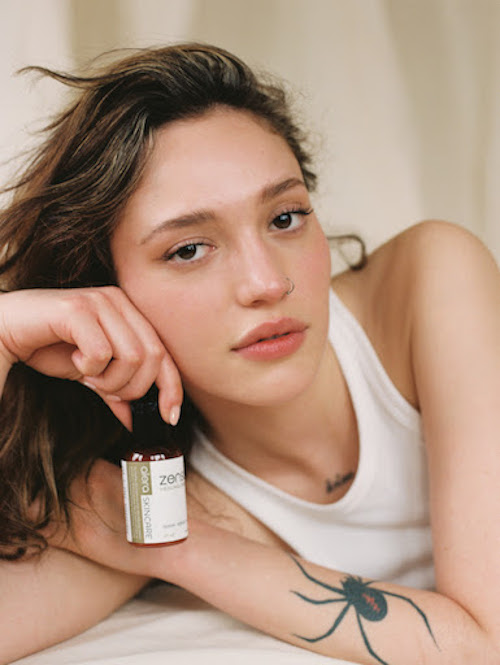
Focus on incorporating antioxidant-rich skincare products, plant and essential oils and foods in your daily routine. Their anti-inflammatory benefits can help calm any redness, soothe the skin and generally support your skin barrier during its healing process.
Avoid direct sun exposure whenever possible. Always apply sunscreen with at least SPF 30 to any visible skin that can be susceptible to UV rays and their free radical damage.
Lower your stress, eat a nutrient-dense diet and get enough sleep to aid your skin barrier recovery journey. Schedule time every day to unwind – meditate, journal, listen to music, etc. – and create a calming nighttime routine to give yourself the best chance at getting a restful night’s sleep.
Feel free to seek out a dermatologist for an expert opinion when curating your skin routine to ensure every step used will aid in restoring your skin barrier function. Ensure you’re checking in with your dermatologist regularly if you’re healing from a severely damaged skin barrier or have a chronic skin condition, like eczema, psoriasis or rosacea.
Remove any exfoliating or abrasive skincare products from your routine until you’ve repaired your skin barrier. Avoid retinoids, AHAs, BHAs and astringents. While exfoliating is important for optimal skin health, give your skin a break while your complexion is in recovery mode. Ditch any specific product or ingredient that could be causing or contributing to your compromised skin barrier.
Focus on incorporating antioxidant-rich skincare products, plant and essential oils and foods in your daily routine. Their anti-inflammatory benefits can help calm any redness, soothe the skin and generally support your skin barrier during its healing process.
Avoid direct sun exposure whenever possible. Always apply sunscreen with at least SPF 30 to any visible skin that can be susceptible to UV rays and their free radical damage.
Lower your stress, eat a nutrient-dense diet and get enough sleep to aid your skin barrier recovery journey. Schedule time every day to unwind – meditate, journal, listen to music, etc. – and create a calming nighttime routine to give yourself the best chance at getting a restful night’s sleep.
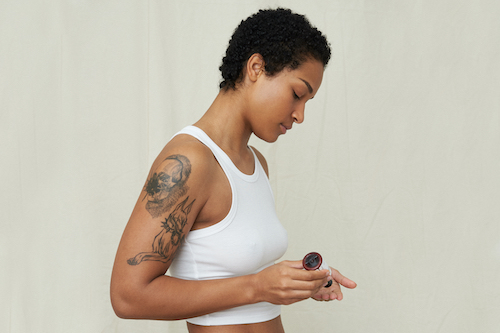
Products To Repair A Damaged Skin Barrier
Select simple, nourishing cleansers, serums and moisturizers with no fragrances or harsh chemicals. Avoid items labeled ‘anti-acne’ or ‘anti-aging.’ These products contain harsh active ingredients that can only further irritate and weaken the skin barrier.
When shopping, look for the following hydrating ingredients to heal and repair the skin barrier:
- Hyaluronic acid
- Glycerin
- Petroleum Jelly (Vaseline)
- Squalane
- Ceramides
- Niacinamide
- Aloe Vera
- Shea Butter
- Colloidal Oatmeal
- Cucumber Extract
- Coconut Oil
- Avocado Oil
- Sunflower Oil
Zensa Healing Cream combines medicinal-grade calendula oil (known for its anti-inflammatory, antifungal and antibacterial benefits) and grapefruit essential oil (high in vitamin C) with nourishing ingredients, including sunflower seed oil, avocado oil, hyaluronic acid, aloe vera and shea butter to moisturize and soothe the skin. Our antioxidant-rich formula helps treat common signs of a damaged skin barrier, thanks to a powerful combination of ingredients rich in vitamin C, E and F, which stimulate collagen production and replenish the skin’s lipid barrier (without clogging your pores) to repair and maintain a healthy skin barrier. It helps reduce skin irritation, accelerate wound healing and help manage inflammatory conditions like eczema – all of which are common signs of a damaged skin barrier. Here’s everything to know about Zensa Healing Cream.
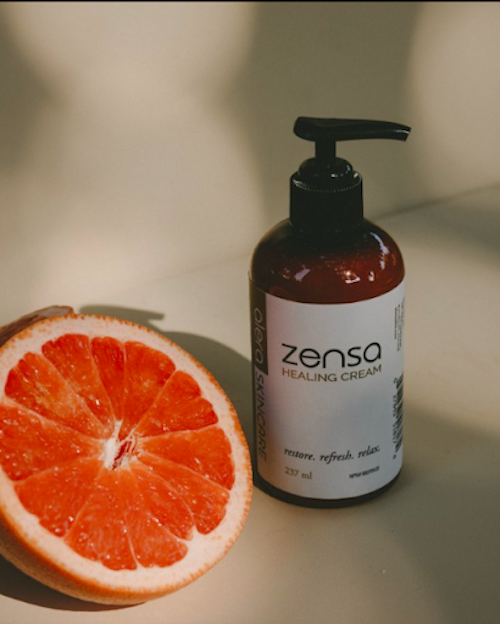
What To Avoid When Healing A Damaged Skin Barrier
- Harsh Skincare Ingredients (exfoliants, AHAs, BHAs, retinoids, any products labeled as ‘anti-acne’ or ‘anti-aging)
- Unprotected Sun Exposure
- Hot Showers or Washing Hands/Face in Hot Water
- Certain Cosmetic Treatment (Chemical Peels, Microneedling, Facial Waxing)
- Smoking
How To Maintain A Healthy Skin Barrier
While the healing process may only take a few weeks (or months), the stratum corneum requires constant attention and care if you want to maintain a healthy skin barrier. Consider and evaluate your daily habits and go-to skincare products to see if any of them played a role in impairing your skin barrier function in the first place. Remember: Prevention will always be the best protection. To ensure you don’t end up in an endless cycle of breaking down and rebuilding this outermost layer of skin, set yourself up to win by following some best practices for a strong moisture barrier. Here are some do’s and don’ts on how to maintain a healthy skin barrier once it’s repaired.
What To Do (and Use) to Maintain A Healthy Skin Barrier:
- Do: Keep Your Skin Hydrated
- Do: Only Incorporate One Active Ingredient In Your Routine
- Do: Stay Mindful of Ingredients
- Do: Always Use SPF
- Do: Use A Humidifier In Dry Air Spaces
- Do: Eat A Nutrient-Dense Diet
- Do: Drink At Least 8 Cups of Water Daily
- Do: Get In Your 7-8 Hours of Sleep
- Do: Find Ways To Destress Daily
Include skincare products containing hyaluronic acid, glycerin, aloe vera, (humectants) ceramides (essential fatty acids), niacinamide (vitamin B3), squalane, shea butter, sunflower seed oil (emollients), petroleum jelly or avocado oil (occlusives) in your routine. Only use one active ingredient in your routine (examples include: AHAs, BHAS, retinol, L-ascorbic acid or vitamin C serum, salicylic acid and benzoyl peroxide). Combining two or more active ingredients into your routine at a time can wear down and damage your skin barrier. Set up your environment for supple skin by using a humidifier to add moisture to cold, dry air in the winter when your heater is running on high (and drying out your skin) and in the summer to keep circulating allergens at bay.
Start your day by always applying sunscreen with at least SPF 30 to complete your morning skincare routine. Be mindful of your consumption habits (food, water, media, etc.) to fuel your day and keep your stress in check. Make getting a full night’s rest a daily priority.
What To Avoid To Maintain A Healthy Skin Barrier:
- Don’t: Over-Wash or Over-Exfoliate Your Skin
- Don’t Use Multiple Active Ingredients At Once
- Don’t: Apply Heavily Fragranced Products (especially if you have sensitive skin)
- Don’t: Indulge In Hot Showers or Saunas Too Frequently
- Don’t: Forgo Fruits & Vegetables On Your Plate
- Don’t: Ignore Your Mental Health And Stress
- Don’t: Smoke
Keep your complexion clean without overdoing it and stripping away its natural oils. Use gentle, hydrating products instead of chemical-laden options that could irritate your skin. Avoid drying out your skin with scorching hot water or too much steam that can open your pores and increase TEWL. Maintain healthy lifestyle habits that boost (not deplete) your body’s vitamin intake and keep your mind clear to revitalize your energy levels and support radiant skin.
